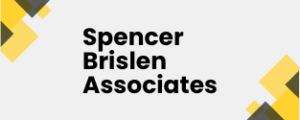What is a strength-based interview? Find out everything you need to know about strength-based interviews here…
Traditional interviews are becoming less common, with many recruiters opting for new ways of finding their dream candidate. While these new interview techniques may be more accurate in determining whether someone is right for a role, they can be intimidating for a candidate.
One of these new interview techniques is a strength-based interview, and it’s becoming an increasingly popular choice among recruiters in the finance industry. So we’re going to look at what they are, why they are being used and how to succeed in a strength-based interview.
What is a strength-based interview?
A strength-based interview assesses what you are good at and what inspires you, and whether those things fit with the role you are applying for. In a strength-based interview, recruiters aim to discover how good you will be at your job, whether you will be motivated to do well and how you would typically respond to common scenarios you would face in the role.
Strength-based interview vs. competency-based interview; what’s the difference?
It is true that strength-based interviews and competency-based interviews are similar, but there are some key differences that set them apart.
A competency-based interview assesses how well you can do certain tasks based on previous experience, whereas a strength-based interview assesses how well you would do a certain task based on whether it plays up to your strengths and passions.
 Why do recruiters like strength-based interviews?
Why do recruiters like strength-based interviews?
The reasoning behind strength-based interviews makes sense. The more you enjoy a job, the better you are going to be at it and the more you will want to learn and improve. You could be highly capable, but if you dislike the task at hand you might not do a great job at it. However, if you are doing something you enjoy you are much more likely to do it to a higher standard.
Another reason they are popular with graduate recruiters is because they do not require you to draw upon past experience. Competency-based interviews rely on you to explain how you have dealt with a previous situation. As a graduate, you may not have much experience in the workplace so it is not necessarily a viable way of deciding whether someone is a right fit.
An added benefit for you, the candidate, when it comes to strength-based interviews is that we often come across best when we are talking about what we love and what we are passionate about so you will come across as more sincere and motivated.
How can I prepare for a strength-based interview?
There is one more reason why recruiters like strength-based interviews, and that’s because they are quite hard to prepare, meaning that your answers will be much more genuine than a spiel you rehearsed in the mirror before you left.
However, there are some things you can do beforehand to prepare. These sorts of things include;
Think about your strengths
This one is obvious, but knowing what your strengths are beforehand will mean that you will be able to answer questions much more confidently. You have to be honest when discussing your strengths; you want this job to be right for you as much as the recruiter wants you to be right for them. If you say that you love project management when actually you hate it, you don’t want to end up in a job that is 50% project management. Ask yourself the following to determine what your strengths are;
- What do you do well?

- What do you enjoy doing at work?
- When do you feel the most motivated?
- What do you not enjoy?
There is no small strength. Being a good communicator may seem like a ‘soft skill’ compared to being a maths-whizz, but many finance jobs need you to be able to explain often complicated topics to the un-initiated so good communication skills are a must for plenty of finance roles.
Consider how your strengths fit in with their culture and values
A huge benefit of strength-based interviews is both you and the recruiter can decide whether you are a right fit for a company.
Look at their company culture and their values, and see how they fit in with what you consider important and what you see as your strengths. It is completely fine for you to feel like a company aren’t a right fit, and a strength-based interview will help you determine this.
Have specific examples to share
This is part of the interview that is no different to all the others. Make sure you can back up your answers with examples of when you have demonstrated your strengths. Don’t be too generic, it’s a bit no-no for recruiters.
What are some examples of strength-based interview questions?
As we have said, recruiters like that you cannot over-prepare for a strength-based interview, and the questions differ from person to person. Some examples of strength-based interview questions include;
- What are you good at?
- How do you stay motivated?
- How do you think this role will play to your strengths?
- What gets left on your ‘to-do’ list?
- What are your weaknesses?
- What tasks come easily to you?
How do you answer strength-based interview questions?
It is really important that you make your answers as authentic as possible, but we can give you a few tips on how best to answer strength-based interview questions:
- Listen to the question carefully
- Make sure you have examples to back up your claims
- When discussing weaknesses, don’t go for a generic response
- ‘I’m a perfectionist’ is overused and a bit rubbish. Be honest, but also make sure you compensate for this weakness with strength or by explaining how you are trying to combat this.
In conclusion, strength-based interviews are not something to be scared of. If anything, you are more likely to enjoy a strength-based interview because you are talking about what you are passionate about, which will be sure to shine through your nerves!






